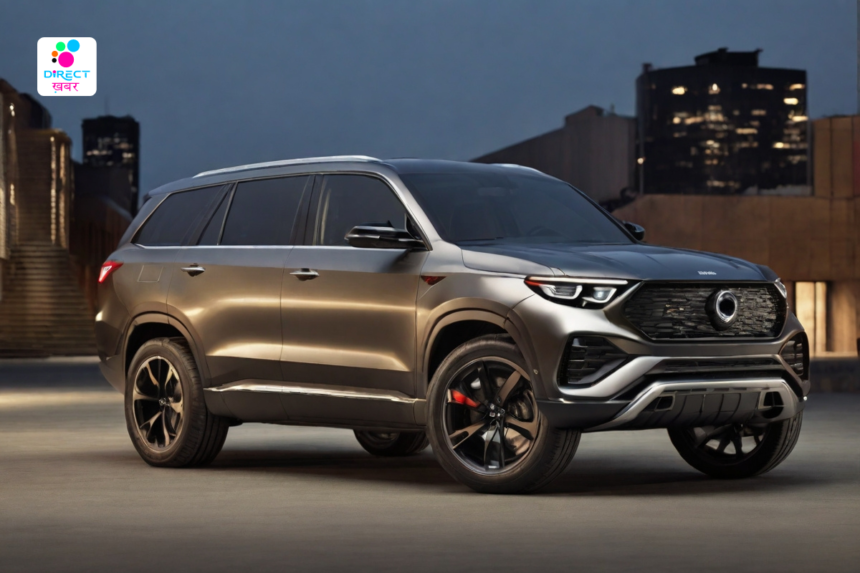How to Choose the Right SUV for Your Lifestyle
Sport Utility Vehicles (SUVs) have become increasingly popular due to their versatility, spaciousness, and capability to handle various terrains. However, with the plethora of options available in the market, selecting the perfect SUV for your lifestyle can be a daunting task. Whether you’re an adventurous outdoor enthusiast, a busy urban commuter, or a family seeking comfort and safety, there’s an SUV tailored to meet your needs. In this guide, we’ll explore essential factors to consider when choosing the right SUV for your lifestyle.

1. Define Your Needs and Lifestyle:
– Assess your daily activities, hobbies, and travel requirements.
– Determine whether you need off-road capability, towing capacity, ample cargo space, or fuel efficiency.
– Consider the size of your family and any future lifestyle changes.
– Evaluate your budget and prioritize features based on your lifestyle requirements.
2. Consider Size and Seating Capacity:
– Determine whether you need a compact, midsize, or full-size SUV based on your space requirements.
– Evaluate the seating capacity needed for your family and occasional passengers.
– Consider the ease of accessing the third-row seats if applicable, especially for families with children.
3. Evaluate Performance and Drivetrain Options:
– Assess your driving environment and determine whether you need all-wheel drive (AWD) or four-wheel drive (4WD) for enhanced traction and off-road capabilities.
– Evaluate the engine options available and choose one that balances power and fuel efficiency according to your driving preferences.
– Test drive different SUV models to assess their handling, acceleration, and overall performance.
4. Safety Features and Technologies:
– Prioritize safety features such as advanced driver assistance systems (ADAS), including adaptive cruise control, lane-keeping assist, and automatic emergency braking.
– Look for SUVs with high safety ratings from organizations like the National Highway Traffic Safety Administration (NHTSA) and the Insurance Institute for Highway Safety (IIHS).
– Consider additional safety features like blind-spot monitoring, rear cross-traffic alert, and surround-view cameras for enhanced visibility.
5. Infotainment and Connectivity:
– Evaluate the infotainment system’s ease of use, responsiveness, and available features such as Apple CarPlay, Android Auto, and built-in navigation.
– Consider entertainment options for rear-seat passengers, including rear-seat entertainment systems and USB charging ports.
– Look for advanced connectivity features like Wi-Fi hotspot capability and smartphone integration for seamless connectivity on the go.
6. Cargo Space and Versatility:
– Assess the cargo space with all seats in place and with the rear seats folded down to accommodate larger items.
– Consider additional storage features like underfloor storage compartments, roof rails, and cargo management systems for organizing your gear.
– Evaluate the ease of loading and unloading cargo, especially if you frequently transport bulky items or outdoor equipment.
7. Fuel Efficiency and Environmental Impact:
– Consider the fuel efficiency of different SUV models and choose one that aligns with your environmental values and budget.
– Evaluate alternative powertrain options such as hybrid, plug-in hybrid, or electric SUVs for reduced emissions and long-term cost savings.
– Calculate the total cost of ownership, including fuel, maintenance, and potential tax incentives for eco-friendly SUVs.
8. Brand Reputation and Reliability:
– Research the reliability ratings and customer reviews for various SUV brands and models.
– Consider the manufacturer’s warranty coverage and reputation for quality and customer service.
– Consult with friends, family, and automotive experts for recommendations and insights based on their ownership experiences.
9. Test Drive and Compare:
– Schedule test drives for the SUVs that meet your criteria to evaluate their comfort, performance, and overall driving experience.
– Compare features, pricing, and ownership costs across different SUV models to make an informed decision.
– Take your time to explore various options and don’t hesitate to ask questions or request additional information from dealership representatives.

Choosing the right SUV for your lifestyle involves careful consideration of your needs, preferences, and budget. By defining your requirements, evaluating performance and safety features, and test-driving different models, you can find an SUV that perfectly complements your lifestyle and provides years of enjoyment and utility on the road. Remember to research thoroughly, prioritize essential features, and take your time to make a well-informed decision that meets your expectations and enhances your driving experience.






